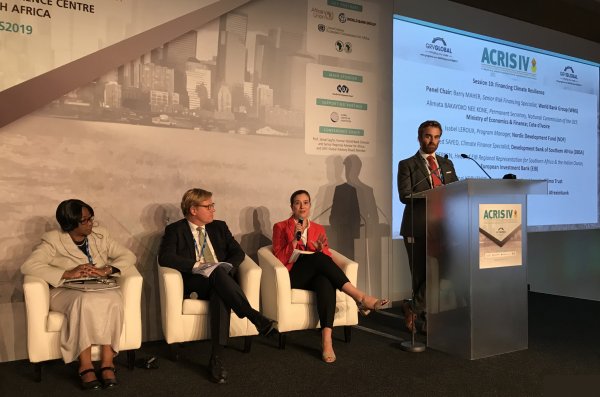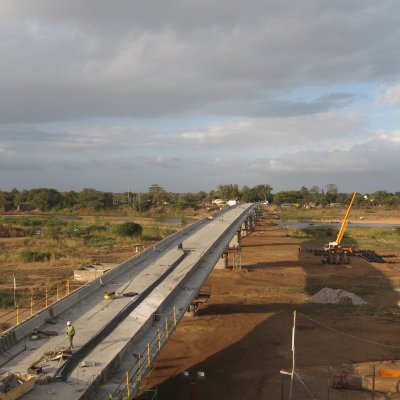Stepping up Climate Action in Africa
The Nordic Development Fund, together with key African stakeholders and major development partners, focus on climate resilience solutions and funding to harness action at scale
The fourth Africa Climate Resilient Infrastructure Summit (ACRIS IV) took place this week at the Sandton Convention Centre in Johannesburg, South Africa. African ministers and senior officials, regional organisations, private sector representatives, and finance institutions took part in the two-day event that had high-level expert panels showcase priority areas of climate-resilient investments. Focus was on Africa’s huge investment gaps in key sectors such as agriculture, water, energy, transport, and landscape and ecosystems – all sectors that are very sensitive to climate change impacts. On the other hand, the high demand for investments under significant climate risks in Africa provides a unique opportunity to get investments right from the onset.
Isabel Leroux, NDF Program Manager, stressed the importance of early-stage financing and challenge funds to catalyse innovative climate solutions and leverage scale-up finance. Ms. Leroux was on a panel to discuss the financing of climate resilience activities.
NDF’s Program Manager Aage Jorgensen, in a panel on knowledge for climate action, highlighted the importance of setting standards for climate change adaptation and updating existing standards to reflect a changing climate. On the panel for urban resilience, Mr. Jorgensen, presented the new Urban and Municipal Development Fund (UMDF) for Africa that is about to begin operations and launch the first call for proposals from African cities.
The backbone of ACRIS IV is the Africa Climate Resilient Investment Facility (AFRI-RES) – a joint initiative of the African Union Commission (AUC), the United Nations Economic Commission for Africa (UNECA), the World Bank (WB) and the African Development Bank (AfDB). The AFRI-RES will strengthen the capacity of African policy-makers, institutions, the private sector, project developers and various other potential beneficiaries to integrate climate resilience into the planning, design, and implementation of investments in selected climate-sensitive sectors, particularly energy, water, transport, ecosystems and agriculture. The initial funding for AFRI-RES is from NDF.
The Department of Environmental Affairs, South Africa, and the South African Development Bank hosted the ACRIS IV event.


